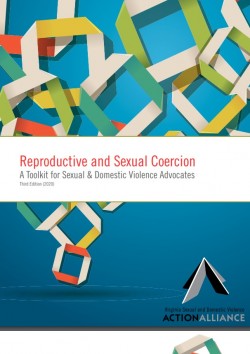Resources Library: Model Policies & Best Practices
Start a Search:
Red Flag Campaign Relaunch Webinar

The Red Flag Campaign is an awareness campaign that educates college students about sexual assault, dating violence, and stalking by highlighting the warning signs, or “red flags,” that students may see in a friend’s relationship.
Through using a bystander intervention strategy, the campaign encourages friends and other campus community members to “say something” when they see red flags for dating violence such as emotional abuse, jealousy, isolation, victim blaming, coercion, stalking, microaggressions, and sexual assault.
Launched in Virginia in 2007, the Red Flag Campaign has since spread across the country to over 400 college campuses, military bases and academies, and community-based advocacy agencies in 48 states and Canada. It was created in partnership with college students, college personnel, and community victim advocates, and funded by grants from the Verizon Foundation, Verizon Wireless, Macy’s Foundation, and the Centers for Disease Control & Prevention.
The campaign includes a digital guide for implementation, miniature red flags for raising awareness in highly visible campus locations, and printed posters featuring active bystander responses to red flag statements. In 2022, Action Alliance staff began a process to create two new series of posters and revise the digital Campus Planning Guide to reflect current student experiences. This webinar shares the history of the campaign as well as the revision process and all of the new materials the campaign has to offer.
Click here to access the recorded session on these updates.
Reproductive and Sexual Coercion: A Toolkit for Sexual & Domestic Violence Advocates

The Virginia Sexual and Domestic Violence Action Alliance seeks to build local sexual and domestic violence agencies’ capacity to identify reproductive and sexual coercion. This includes: implementing screening for reproductive and sexual coercion, implementing policies and procedures that address reproductive and sexual coercion, fostering partnerships with family planning and reproductive health providers, and doing the above-mentioned work through a reproductive justice framework or lens.
The goal of this toolkit is to help begin conversations and implement new or clarify existing policies within your agency: What is reproductive and sexual coercion? Why is a reproductive justice framework necessary? How can we best support survivors of sexual and intimate partner violence with a better understanding of reproductive and sexual coercion? What are sample policies and procedures my agency can utilize? Who in my community can I collaborate with on this work? We hope this resource provides some answers to these questions while also guiding and supporting further learning on these topics to best support the specific needs of your community.
Resources Addressing the Unique Needs of Black and Latin@ LGBQ/T Survivors of Partner Abuse

TOD@S (Transforming Ourselves through Dialogue, Organizing, and Services) is an interagency collaboration between The Hispanic Black Gay Coalition, The Violence Recovery Program at Fenway Health, The Network / La Red, and Renewal House (a program of the Unitarian Universalist Urban Ministry) in Boston, Massachusetts. Their mission is to improve and increase access to intervention and prevention services for Black and Latin@ lesbian, gay, bisexual, transgender, and queer (LGBTQ) people affected by partner abuse.
They have created a Community Needs Assessment and Action Plan as well as a training for community service providers.
Resources from the National Center on Elder Abuse
The National Center on Elder Abuse (NCEA) has collected all of its products (reports, webinars, podcasts, databases, etc.) in one location for easy access and availability.
Click the following links for more information on:
Elder Rights Resources - Prevention of elder abuse, legal assistance, world elder abuse awareness, and more
NCEA publications - These include information on LGBT elder concerns, financial abuse and exploitation, culturally-specifc resources, persons with disabilities, and more
Virginia-specifc state resources for elders
Supports and Tools for Elder Abuse Prevention
The Reframing Elder Abuse Project - a communications strategy and toolkit that reimagines our cultural dialogue on elder abuse
Rural and Tribal Elder Justice Resource Guide: Summit Event Briefing
Summit Event Briefing
November 14-15, 2018
Marriott Downtown 700 Grand Ave.
Des Moines, Iowa
On June 15, 2018, the United States Department of Justice and Department of Agriculture committed to working together to promote elder justice in rural and tribal communities. Elder justice refers to a society’s response to elder abuse, which includes physical abuse, caregiver neglect, financial exploitation, psychological abuse, sexual abuse, and abandonment. Each year in America, at least 10% of older adults (age 60 or older) experience one or more forms of elder abuse. This is unacceptable.
The goal of the Summit and subsequent activities is to enhance the ability of elder justice professionals to more robustly respond to the unique needs of older adults residing in rural and tribal communities by sharing best practices and proposing innovative strategies to fill the identified gaps in service needs, all with the goal of enhancing the lives of older Americans everywhere.

